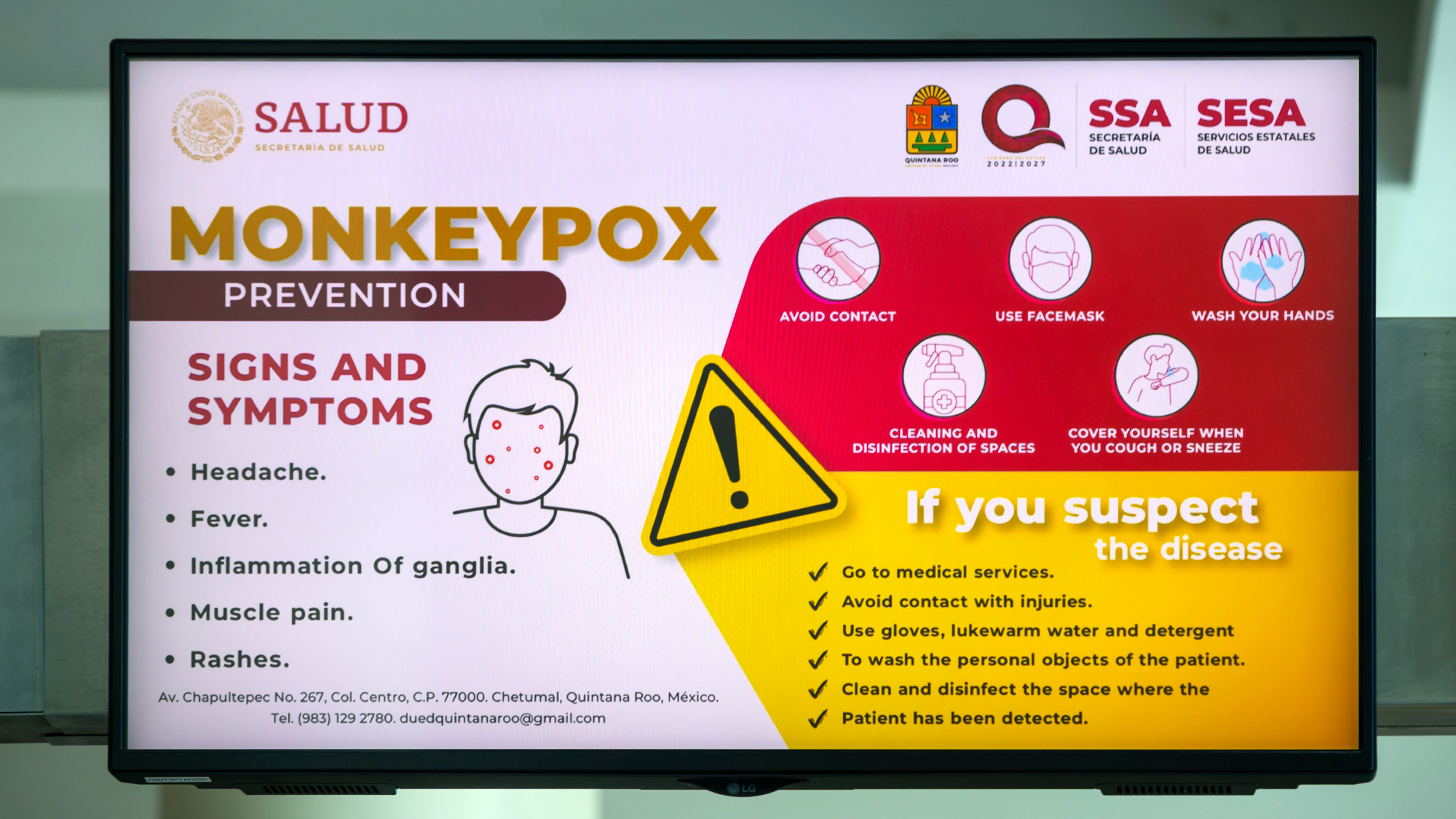E-cigarettes should be prescribed on the NHS, says health body
Public Health England says vaping is 95% less harmful than smoking and could save thousands of lives

A free daily email with the biggest news stories of the day – and the best features from TheWeek.com
You are now subscribed
Your newsletter sign-up was successful
Electronic cigarettes should be made available on the NHS to help smokers quit, public health officials have announced.
Researchers at Public Health England (PHE) have been analysing the effects of e-cigarettes, as conflicting reports emerge about the safety of the devices.
"Their findings are unequivocal," says the BBC's health correspondent Adam Brimelow. Experts found that e-cigarettes are up to 95 per cent less harmful than traditional cigarettes.
The Week
Escape your echo chamber. Get the facts behind the news, plus analysis from multiple perspectives.

Sign up for The Week's Free Newsletters
From our morning news briefing to a weekly Good News Newsletter, get the best of The Week delivered directly to your inbox.
From our morning news briefing to a weekly Good News Newsletter, get the best of The Week delivered directly to your inbox.
One of the study's authors, Professor Ann McNeill from King's College London, said e-cigarettes could be a "game changer" in getting people to quit smoking and could save tens of thousands of lives.
Currently 80,000 people in England die every year from smoking. If all smokers made the switch to e-cigarettes, experts predict that the number would fall to just 4,000. "That's the best estimate at the moment. It may well be much, much lower than that," says McNeill.
Based on the evidence, PHE says it "looks forward to the arrival" of a range of medicinally regulated products that can be made available to smokers by the NHS on prescription.
Though it stressed that e-cigarettes are not completely risk-free, the study said they "have the potential to make a significant contribution to the endgame for tobacco".
A free daily email with the biggest news stories of the day – and the best features from TheWeek.com
The report has been welcomed by the government’s chief medical officer, Dame Sally Davies, who told The Guardian that licensing the vaping devices as medicines would provide assurance of their safety, quality and efficacy to consumers trying to give up traditional cigarette smoking.
But the British Medical Association, which has long supported efforts to regulate e-cigarettes, has expressed caution. Spokesman Dr Ram Moorthy said he welcomed an informed debate on the matter but warned that medical professionals still have "significant concerns" about the inconsistent quality of e-cigarettes
Meanwhile the smokers group Forest questioned whether the government would be able to justify spending tax payers' money on e-cigarettes. "[Promoting them] as a state-approved smoking cessation aid ignores the fact that many people enjoy vaping in its own right and use e-cigs as a recreational not a medicinal product," said its director Simon Clark.
Briefing: what are e-cigarettes?
E-cigarettes come in a range of shapes and sizes, but common to all of them is the way they work. A built-in battery powers a small electronic heating element located in the "atomiser", which draws liquid up from a cartridge and onto the element. The solution, usually a mixture of propylene, glycol, glycerine, flavourings, and – critically – nicotine, turns to vapour and is inhaled through the mouthpiece.
Some e-cigarettes look like a regular tobacco cigarette, others look more like the top of a hookah pipe. Others still have been made to look like a traditional pipe – the kind that Sherlock Holmes smoked.
Are they dangerous?
Anna Gilmore, director of the Tobacco Control Research Group at the University of Bath told The Guardian: "E-cigarettes are certain to be way less harmful than cigarettes. Common sense would dictate that". But their long-term effects still remain unknown.
The WHO has previously said that their safety is "illusive", noting that it is impossible to know what effect they may have on the body because "the chemicals used in electronic cigarettes have not been fully disclosed, and there are no adequate data on their emissions".
The British Medical Association (BMA) has also expressed concerns about the lack of adequate testing or controls. "The real truth," says Gilmore, "is that we just do not know. We cannot say e-cigarettes are risk-free. We cannot yet be sure what impact they will have on smoking rates or population health, whether they'll be the miracle product or not."
However, researchers at Public Health England now say that e-cigarettes are 95 per cent safer than conventional cigarettes and, though not risk-free, "have the potential to make a significant contribution to the endgame for tobacco".
Should they be regulated?
Professor Robert West, of University College London told the BBC that e-cigarettes should be "regulated appropriate to what they are" and that they are "orders of magnitude safer" than tobacco cigarettes
He suggested "bespoke regulation" including banning sales for under-18s and controls on how the devices are advertised.
Dr Vivienne Nathanson, the British Medical Association's director of professional activities, told the BBC that there was evidence that children were beginning to use e-cigarettes as a direct result of marketing campaigns.
"Rather like cigarettes in the 50s and 60s, we really need to look at [advertising] and, I believe, ban it, to stop them advertising in a way that attracts children," she said.
Professor John Ashton, president of the UK's Faculty of Public Health, agreed that the possibility that advertising might impact on children was a cause for concern.
E-cigarettes are currently not regulated as medicines in the UK, the Daily Telegraph notes, but Britain's drug watchdog the MHRA wants to introduce new controls by 2016.
Wales to usher in e-cigarette ban in public spaces
9 July
Wales is planning to ban the use of e-cigarettes in enclosed public spaces and workplaces, dividing opinion among health groups.
Under a new public health law, people will be banned from using electronic cigarettes in areas such as bars, restaurants and offices. They will also be prohibited in lorries and taxis.
Public Health Wales and the BMA are in favour of the curbs on the use of e-cigarettes, which are expected to come into force in 2017.
However, a host of respected organisations oppose the move. These include anti-smoking campaign group ASH Wales and Cancer Research UK, while the British Heart Foundation, British Lung Foundation and Royal College of Physicians want to see more evidence.
Some opponents are concerned that the ban might discourage smokers from using e-cigarettes to stop smoking. George Butterworth, tobacco policy manager for Cancer Research UK, told the BBC: "E-cigarettes are an opportunity for people to move away from tobacco smoking which is very, very bad for their health, and we wouldn't want to put up any barriers to prevent people from quitting cigarettes."
However, ministers believe e-cigarettes are a "gateway" for young people to start smoking by normalising cigarettes. Health minister Mark Drakeford said the new Public Health Bill has found the correct balance of helping smokers quit and preventing young people from smoking in the first place.
The plan, which is the first in the UK, is also seen as an illustration of the benefits of devolution. Welsh officials have made the move independently of their counterparts in England, Scotland and Northern Ireland.
Similar restrictions on e-cigarette use already exist in countries such as Belgium, Spain and Malta, with proposals on the table in France and Ireland.
Tattoo and piercing parlours will need licences under another measure introduced in the Public Health Bill.
E-cigarettes: safer than tobacco, say researchers
Electronic cigarettes are "less harmful" than traditional cigarettes, an analysis of recent studies released last summer concluded.
An international group of scientists analysed data from over 80 studies conducted on the use and sale of e-cigarettes. According to the BBC, it focused on safety concerns, the toxicity of the chemicals present in both the liquid and the vapour and analysed the rate of use among non-smokers as well as smokers.
The analysis also showed that e-cigarettes are not regularly being used by non-smokers or those under the age of 18. It said that there was no evidence that the products encouraged young people to start smoking.
Most significantly, scientists showed that e-cigarettes can help smokers cut down their cigarette intake and even help them quit entirely. And they warned that tough regulation of the new industry could "damage public health on a big scale".
"Regulators need to be mindful of crippling the e-cigarette market and by doing so failing to give smokers access to these safer products that could save their lives", said Professor Peter Hajek, one of the authors of the paper.
However, Prof Martin McKee, of the London School of Hygiene and Tropical Medicine pointed out that despite the research, health professionals remain "deeply divided" on the issue.
E-cigarettes become the 'alcopops of the nicotine world'
31 March
Teenagers in the UK are increasingly experimenting with electronic cigarettes, a large-scale health study has found.
"E-cigarettes have rapidly become part of at-risk teenagers' substance-using repertoires," said Professor Karen Hughes, who is one of the study’s authors. Her team believes that the electronic devices have become the "alcopops of the nicotine world" and urgently require tougher regulation.
Researchers who surveyed more than 16,000 students aged 14 to 17 in the north west of England found that boys were more likely to experiment with e-cigarettes than girls.
The study also found that teenagers who drank alcohol were "significantly" more likely to experiment with e-cigarettes than non-drinkers, the Press Association reports.
The issue of e-cigarettes continues to divide healthcare experts. Some insist they are a safer option to smoking and have helped many people give up, others say they are a public health menace with no real track record in terms of effectiveness. The World Health Organization argues that they could lead to the "renormalisation" of smoking and warns that their long term health effects are still unknown.
A ban on selling e-cigarettes to teenagers under the age of 18 has been announced in England. Similar measures may soon be introduced nationwide as a result of health concerns associated with their use, as well as fears that they could serve as a gateway to traditional cigarettes.
E-cigarettes contain "a highly addictive drug that may have more serious and longer lasting impacts on children because their brains are still developing," warned Professor Mark Bellis, who also worked on the study.
Dr John Middleton of the Faculty of Public Health told the BBC that nationwide regulation of e-cigarettes is urgently needed.
"Our concern is that if we wait for proof that electronic cigarettes could act as a gateway to smoking cigarettes, it will already have happened and the tobacco industry will have been given the opportunity to recruit its next generation of smokers," he said.
-
 Political cartoons for February 15
Political cartoons for February 15Cartoons Sunday's political cartoons include political ventriloquism, Europe in the middle, and more
-
 The broken water companies failing England and Wales
The broken water companies failing England and WalesExplainer With rising bills, deteriorating river health and a lack of investment, regulators face an uphill battle to stabilise the industry
-
 A thrilling foodie city in northern Japan
A thrilling foodie city in northern JapanThe Week Recommends The food scene here is ‘unspoilt’ and ‘fun’
-
 Mystery illness spreading in Congo rapidly kills dozens
Mystery illness spreading in Congo rapidly kills dozensSpeed Read The World Health Organization said 53 people have died in an outbreak that originated in a village where three children ate a bat carcass
-
 America is leaving WHO. What does that mean for public health?
America is leaving WHO. What does that mean for public health?Today's Big Question Trump orders the withdrawal
-
 No more bugging: how Egypt became certified malaria-free
No more bugging: how Egypt became certified malaria-freeUnder the radar It was a century-long effort
-
 Baby food is not as healthy as it should be
Baby food is not as healthy as it should beUnder the Radar Labels are leaving things out. And brands are highlighting only what they want to.
-
 Mpox: how dangerous is new health emergency?
Mpox: how dangerous is new health emergency?Today's Big Question Spread of potentially deadly sub-variant more like early days of HIV than Covid, say scientists
-
 WHO declares mpox a global health emergency
WHO declares mpox a global health emergencySpeed Read An outbreak of the viral disease formerly known as monkeypox continues to spread in Africa
-
 Have we defeated malaria?
Have we defeated malaria?The Explainer Roll-out of low-cost vaccine means a world free from disease that claims 600,000 lives a year 'finally within sight'
-
 Pharmaceutical companies are warning of a rise in knockoff drugs
Pharmaceutical companies are warning of a rise in knockoff drugsUnder the Radar The World Health Organization is also urging consumers to be cautious